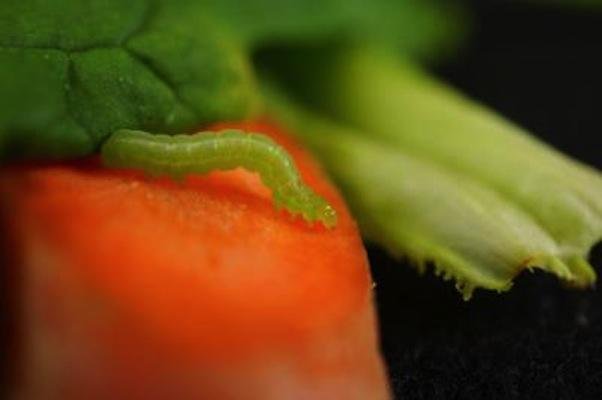The fruits and vegetables we buy are still alive, and it matters to them what time of day it is, and a new study suggests storing produce in light-dark cycles to maintain their circadian rhythms. (Goodspeed et al)
The fruits and vegetables we buy in the grocery store are actually still alive, and it matters to them what time of day it is, according to a new study in Current Biology.
The modular design of plants allows individual plant organs -- fruits, roots, leaves -- to maintain autonomous functions and continue aspects of metabolism, including respiration, even after separation from the parent plant.
"Vegetables and fruits, even after harvest, can respond to light signals and consequently change their biology in ways that may affect health value and insect resistance," says Janet Braam of Rice University in Texas.
Braam's team showed that post-harvest produce can continue to perceive light and, as a result, their biological clocks keep ticking. Circadian rhythms allow plants to alter levels of chemicals that protect them from insects and other herbivores. When eaten by us, some of those phytochemicals may have anti-cancer effects.
The researchers made the initial discovery experiments with cabbage. They went on to show that circadian rhythms could be "re-entrained" in lettuce, spinach, zucchini, sweet potatoes, carrots and blueberries.
Fruits and vegetables subjected to light-dark cycles at the right times suffered noticeably less insect damage.
"Perhaps we should be storing our vegetables and fruits under light-dark cycles and timing when to cook and eat them to enhance their health value," Braam said.
Braam also said "it may be of interest to harvest crops and freeze or otherwise preserve them at specific times of day, when nutrients and valuable phytochemicals are at their peak."















